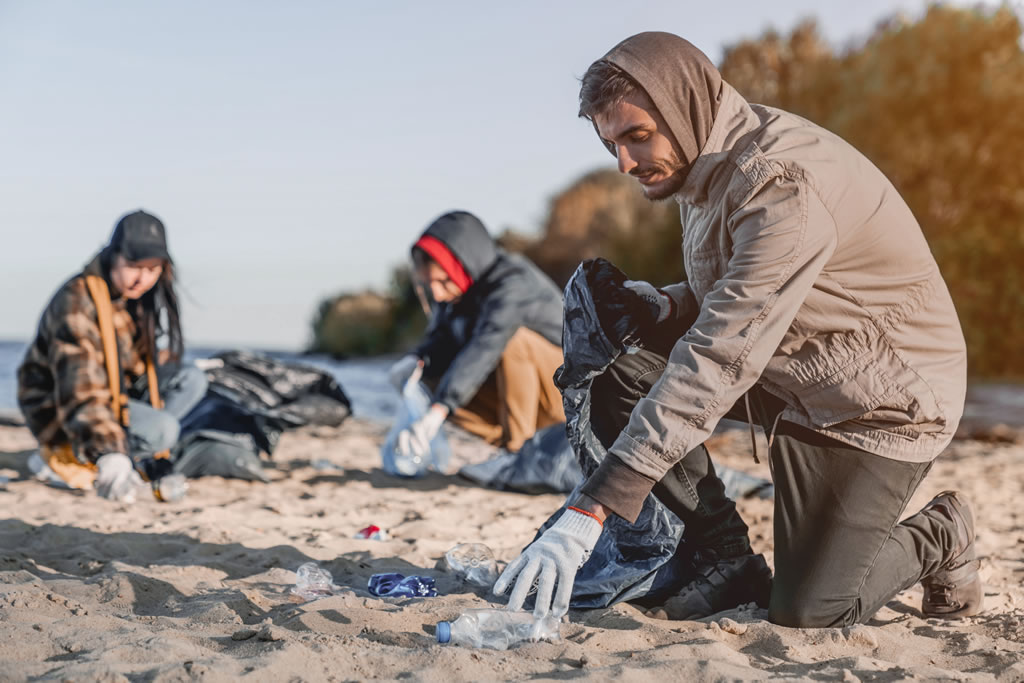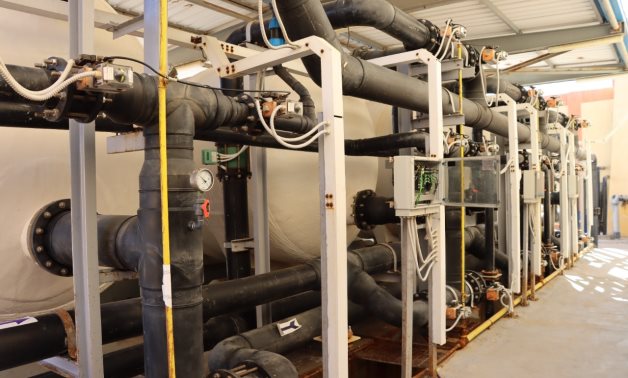
Dune 2: Lessons in Water Conservation and Conservative Principles

The recent release of Dune: Part Two brings Frank Herbert's universe to life, emphasizing the preciousness of water on Arrakis. The film further explores the journey of Paul Atreides and the ingenious water conservation techniques of the Fremen, such as stillsuits and water discipline, highlighting their relevance to our current environmental challenges.
The science fiction saga Dune vividly illustrates a world where water scarcity is a critical concern. The desert planet Arrakis, where the story unfolds, presents a harsh reality where every drop of water is precious. The inhabitants, known as the Fremen, have developed sophisticated methods to conserve water, embedding conservation deeply into their culture; their way of life offers profound insights into sustainable living, reminding us of the critical importance of preserving our planet’s precious resources.
These practices resonate with many conservative principles, offering valuable lessons for our own world facing water scarcity and climate change. Surprisingly, these lessons from science fiction can inform us on how we can deal with the issue of water scarcity in our own communities – let’s explore some options.
Stillsuits and Efficient Resource Use
One of the most iconic elements in Dune is the stillsuit, a high-efficiency garment designed to reclaim the body's moisture. Characters like Paul Atreides and the Fremen wear these suits, which capture sweat, exhalation, and other forms of bodily moisture, recycling it into drinkable water. This represents the pinnacle of resource efficiency—a principle that aligns closely with conservative values of avoiding waste and maximizing utility.
In our own lives, adopting high-efficiency technologies can significantly reduce water wastage. Simple steps such as installing low-flow showerheads and faucets, using water-efficient appliances, and fixing leaks promptly can make a substantial difference. These measures echo the stillsuit's principle of capturing and reusing every possible drop of water.
Community Water Discipline and Collective Responsibility
The Fremen's strict communal rules around water usage are vividly depicted in scenes where they gather in sietches (underground habitats). Water is shared according to well-defined community norms, emphasizing collective responsibility and mutual support. This approach mirrors conservative principles that prioritize community and shared responsibility in managing resources.
In modern communities, we can adopt similar practices by supporting local water conservation initiatives, participating in community education programs about water use, and advocating for policies that promote equitable water distribution.
Water Tribute System and Structured Management
In a poignant scene from Dune, the body of a deceased Fremen warrior is drained of its water, which is then added to the community's reserves. This water tribute system ensures that no water is wasted, demonstrating a disciplined and structured approach to resource management. Such meticulous management of resources resonates with conservative principles of order and efficiency.
While the Fremen’s approach is rather radical, structured water management is fully applicable in our daily lives. Keeping track of our water usage and reusing water for alternative purposes can lead to significant savings and more sustainable use of this vital resource.
Environmental Adaptation and Sustainable Living
The Fremen's adaptation to the arid environment of Arrakis through sustainable practices is a central theme in Dune. They use methods such as sand compaction and moisture farming to thrive in the desert. These practices underscore a conservative approach to environmental stewardship, emphasizing the need to live sustainably within the means provided by nature.
For us, sustainable living can be achieved by implementing planting drought-resistant plants or collecting and using rainwater for irrigation. These practices help us adapt to changing environmental conditions and ensure the long-term sustainability of our water resources, by reducing our overall water consumption by adapting our everyday behaviours.
Windtrap Technology and Resource Innovation
Dune features innovative windtraps that capture and condense moisture from the air, providing a vital water source for the Fremen. This use of technology to conserve resources aligns with conservative values that embrace innovation for the sake of conservation.
We can follow this example by supporting and adopting new technologies designed to save water. From smart irrigation systems that optimize water use to greywater recycling systems that reuse water from sinks and showers for irrigation, embracing innovation can significantly reduce our water footprint.
Water Discipline as Cultural Norm and Personal Responsibility
The cultural norm of water discipline is deeply ingrained in Fremen society. A memorable scene depicts a Fremen spitting on the ground as a sign of respect, showing their commitment to conserving every drop of water. This act reflects the integration of conservation principles into cultural norms, akin to conservative views on the importance of tradition and values.
To foster a culture of water conservation, we can start by educating ourselves and others about the importance of water-saving practices. Simple habits such as turning off the tap while brushing teeth, taking shorter showers, and using a broom instead of a hose to clean driveways can collectively make a significant impact. By making water conservation a part of our daily routines and values, we can contribute to a more sustainable future.
"Dune" offers a rich tapestry of water-saving practices that not only ensure the survival of the Fremen but also resonate with conservative principles of efficiency, community responsibility, structured management, sustainable living, and innovation. As our world faces increasing water scarcity and climate change, these lessons from Dune can inspire us to adopt practical measures to conserve water in our daily lives.
By implementing efficient technologies, participating in community efforts, managing water use carefully, adapting to environmental conditions, embracing innovative solutions, and fostering a culture of conservation, we can make a significant impact. Just as the Fremen thrive in the harsh desert of Arrakis through their disciplined and communal approach to water management, we too can ensure a sustainable future for our planet by adopting similar principles and practices.
Recommended Articles

10 Easy Ways to Use Less Water in Your Daily Life
Water is a vital part of our lives, but climate change is here and is impacting our access to sufficient water supplies. And while our water resources are decreasing, we are also increasing in numbers.

How Can we Make Our Rivers Cleaner and Create Awareness
The River Nile, hit hard by pollution. It is well known that Herodotus, an ancient Greek historian who is regarded as the ''Father of History,” famously called Egypt ‘the gift of the Nile’. The ancient old country has historically depended on the Nile to build its magnificent civilization, and till today the Nile remains its main source of water supply.

Saving Water in Your Home: Smart Water Conservation Systems You Can Use
While domestic water use only represents 8-10% of total global water consumption, every drop counts in countries facing severe water stress, such as Egypt and Morocco.

Panel Discussion held for Students on Climate Change And Water Scarcity at the EduTech Fair in Egypt
Over twenty technical school students attended a panel discussion organized by the European Union Climate Dialogue and the European Union on the 18th of April 2024 during the EduTech Fair in Cairo, Egypt.

Dune 2: Lessons in Water Conservation and Conservative Principles
The recent release of Dune: Part Two brings Frank Herbert's universe to life, emphasizing the preciousness of water on Arrakis. The film further explores the journey of Paul Atreides and the ingenious water conservation techniques of the Fremen, such as stillsuits and water discipline, highlighting their relevance to our current environmental challenges.

The Race for Clean Water: Impressive Desalination Innovations
The Sustainable Development Goals were adopted by the United Nations in 2015 as a universal call to action to ensure that by 2030, all people in the world enjoy peace and prosperity. The SDGs include 17 main goals that the UN seeks. Goal No. 6 stipulates "Ensure availability and sustainable management of water and sanitation for all." Although notable progress has been made, water stress and scarcity remain concerns in many parts of the world.